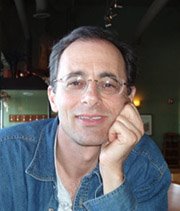“I don’t believe it,” is the response I have come to expect from my graduate students whenever I tell them that I miss being a graduate students because I had more time on my hands as well as more intellectual freedom. They don’t quite say it, but the gasp and the look of disbelief are quite conspicuous.
Yes, professors are busy people, despite what many folks seem to think.
As I wrote at the end of “Coming to Voice: Publishing as a Graduate Student” (2003):
Now that I have a tenure-track job, however, I have come to think of being a graduate student as a somewhat privileged status. At Purdue, I was only teaching three courses per year. I had no obligation to administer programs, serve on academic committees or mentor graduate students, although I did so voluntarily. Most important of all, l had more freedom in choosing which conversation to join and in which form, whereas I now feel some pressure to focus on certain types of publications, such as monographs and articles in prestigious journals. Some of my professional colleagues have also told me about the pressure they felt about the need to develop a coherent professional profile that was in sync with their teaching. My professional identity will no doubt be influenced by the ever-so-unclear requirements for tenure and promotion. But will I be able to continue thinking like a professional whose goal is to contribute to the field regardless of how it will be evaluated? Will I start thinking like a junior faculty member who will publish for tenure and promotion—for the sake of having published? Or will I be able to find a happy medium? The biggest challenge I faced as a graduate student continues to confront me.
I wrote this in my first year on tenure-track at Miami University, but even after having gone through the tenure process twice—once at UNH and again when I moved to ASU with tenure—it still rings true.
I’ve managed to focus on what I think is important for the field and for second language writers, but I do sometimes think about things like the
impact factor when I choose the journal to send my manuscript to, which many institutions now use as a way of evaluating faculty contributions. The impact factor is not the best measure of the relative value of a journal, but it is one way of measuring the impact that a journal has on the field. (I must say, though, that using the
impact factor to compare across different disciplines--or even within subfields--is meaningless. To do that, we need an index that accounts for the size of the field, among many other things.)
I’ve also been struggling with the balance between what I want to do and what I’m asked to do (which is not altogether different from what I want to do because I can say—and have said—no). It’s nice to be invited to write on a particular topic, which helps me to expand the scope of my work, but sometimes it takes time away from those exciting new projects that I’ve been wanting to work on.
A few days ago, Abby Knoblauch, one of my collaborators and a former student of mine, sent me an email to let me know how she is doing on her new job as an Assistant Professor of English at Kansas State University. I was happy to hear from her especially because things seems to be going well for her—she surrounded by nice and supportive colleagues. What struck me the most, however, was her comment that she didn’t realize how busy being a professor really would be.
Suddenly graduate school seemed to be full of these grand expanses of free time. I know that's not true—or at least not how it felt—but yikes am I busy. I mean, clearly you know this, but it's all new to me.
On top of the heavier teaching load and committee work as well as the never-ending expectation to produce scholarly work, she is inundated with email and campus mail from various people, which takes up a lot of time to sort through.
I assured her that the workload will only increase as she moves up in rank, but that it is possible to learn to cope with it.
Labels: grad school, unsolicited advice



